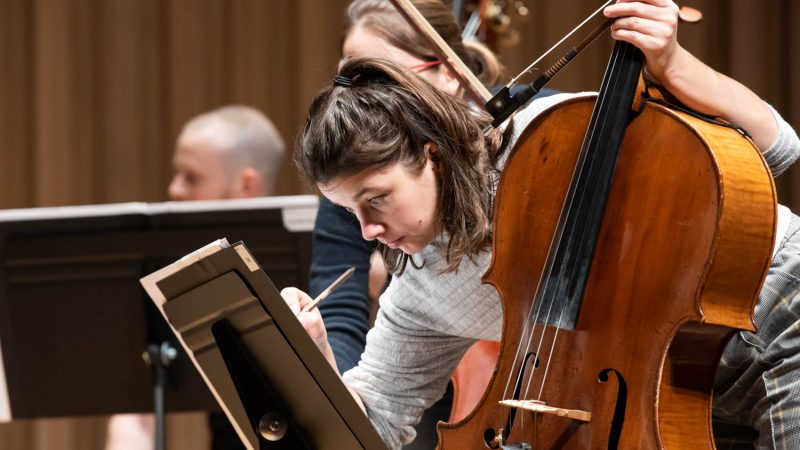Strauss Metamorphosen / Capriccio review by John Hardy
Published Thursday 19 November 2020
The playing of this sublime music was so perfect, so well-prepared and communicated, so deeply understood, and so profoundly moving, that I found myself unable to sink in and wallow in the luxury of such rare quality in this challenging and deceptively difficult repertoire. I was so aware I was in the presence of greatness, of composer, of the terrible times during which the grief-stricken composer created the joyous and loving webs of melody, rich harmony and endless contrapuntal interplay, and of high level performance by this perfectly matched and balanced all-female septet of strings, that I knew I had to stay alert, and to bear witness to the power unfolding on the Dora Stoutzker stage.
The Capriccio Sextet from Strauß’s late opera Capriccio [‘A conversation Piece for Music’] is all smiles and backwards references to happier times. Two each of violins, violas and cellos feel like they are as big an ensemble as could be desired to express the huge range of fleeting emotions in this expert work of late romantic expertise and affectionate warmth.
Leader Caroline Pether spoke, during the concert, with passion and informed detail about the power and relevance for our times of the Sextet, and, even more so, of the Metamorphosen.
Strauß published this final large scale work [nearly 30 minutes of endlessly evolving, twisting, turning and returning motifs, handled with staggering expertise by an old composer in his early eighties] in its version as a work ‘for 23 solo strings’ – which normally requires a conductor, and which provides such a challenge in terms of co-ordination and fine tuning that it is rare if not impossible to hear a live performance which manages to stay in tune throughout.
But among Strauß’s sketches were found versions for septet and also for 11 strings, and the first of these has been brilliantly edited and published for this performance by Rudolph Leopold. The thinner, more luminous textures, and the delicate filigree dialogue between just seven players, communicates with huge emotional impact, and also with a sense of the pity of the vast destruction and evil that the Nazi regime brought with it. Hitler died, and the war in Europe fell silent, only two weeks after this extraordinary human statement was completed.
I urge you to listen to this – perhaps listen a few times if you can – and allow the many facets to sink into you, and your own tired soul to sink into it, like a warm bath at the end of a long and interesting day.
Watch here : https://www.rwcmd.ac.uk/events/2020-11/sinfonia-cymru
John Hardy, Head of Composition, Royal Welsh College of Music and Drama